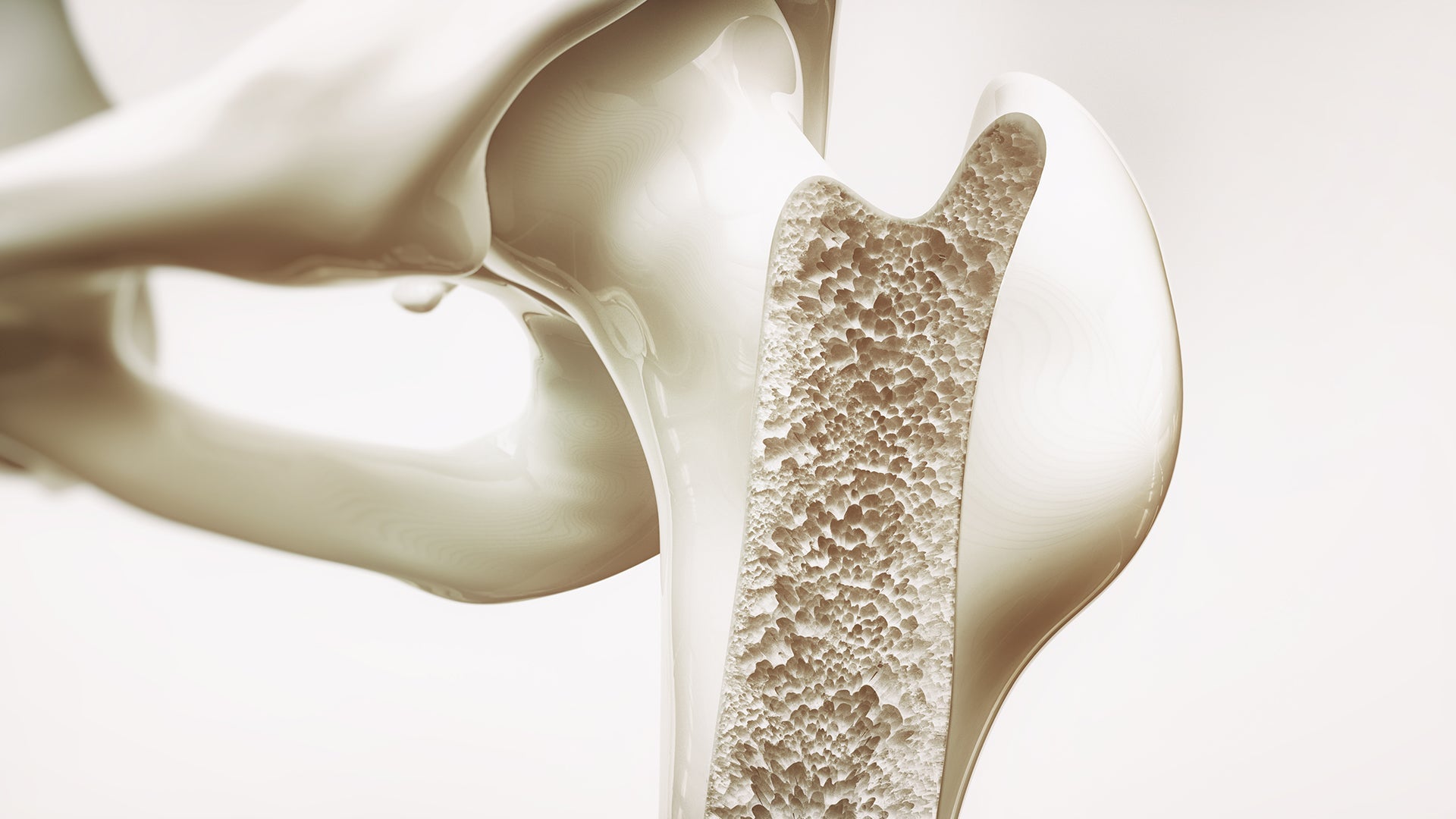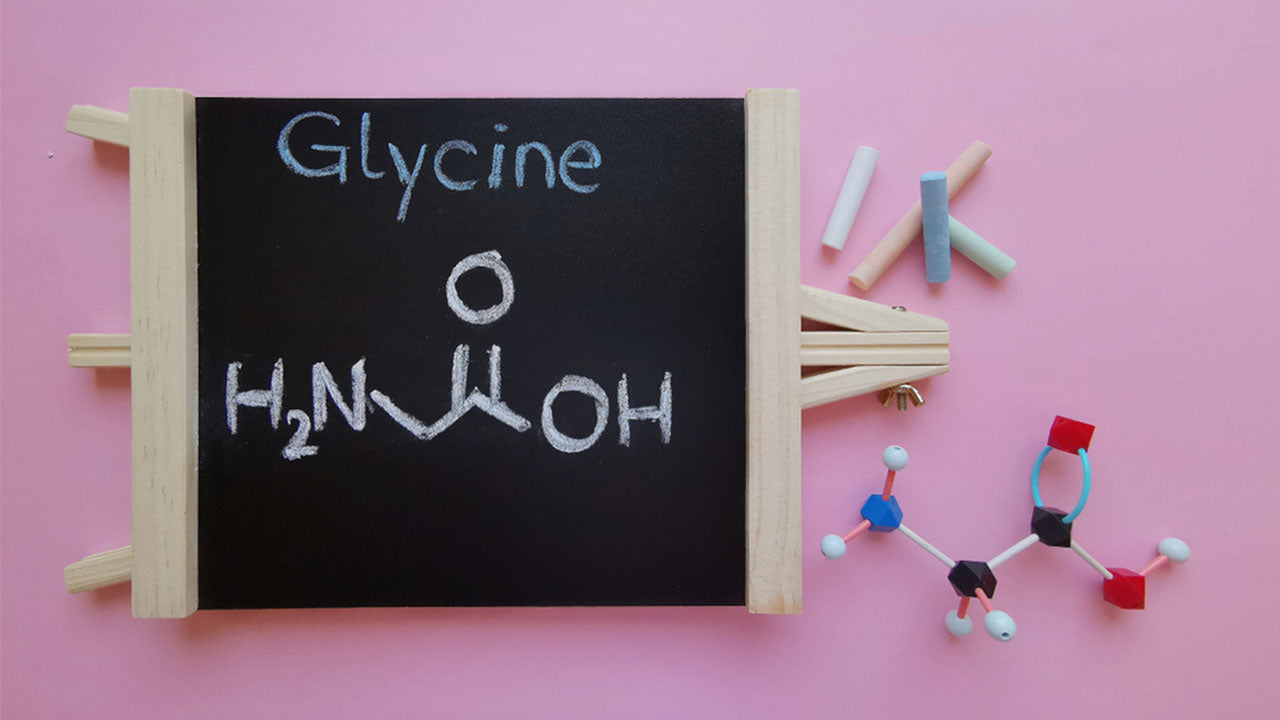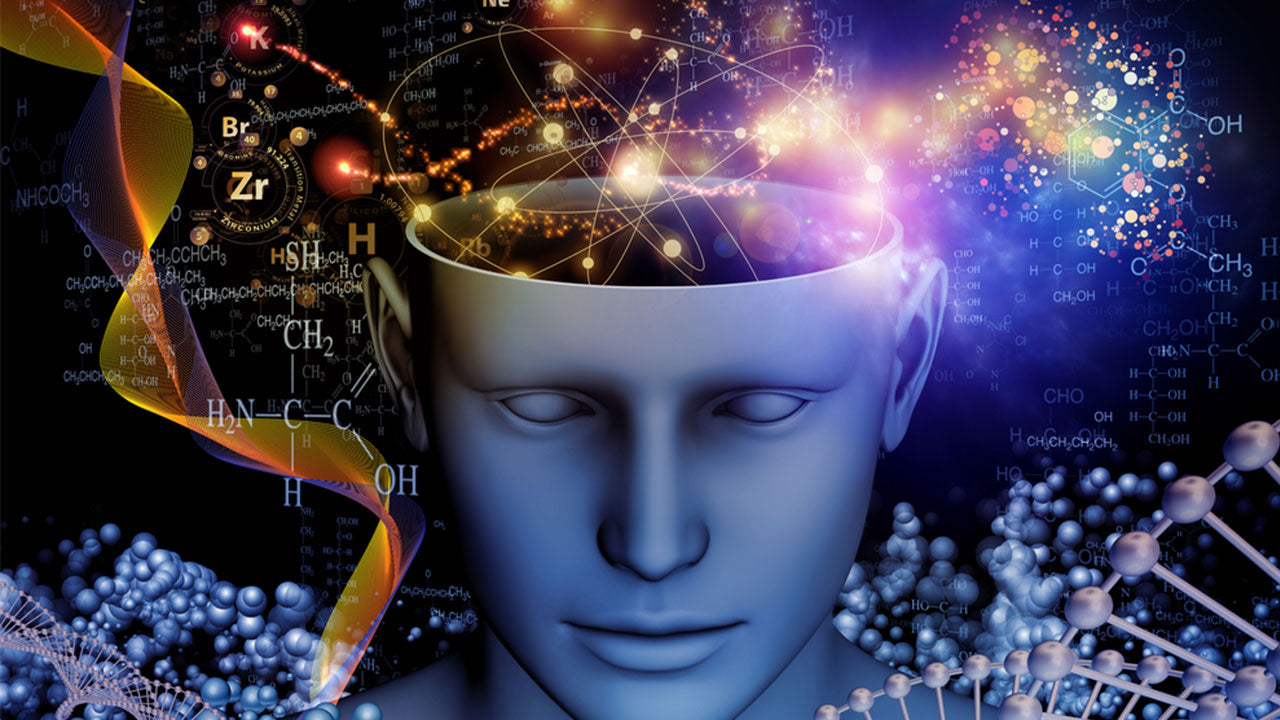The Effect of Protein and Amino Acids on Bone Health
 By: by Amino Science
By: by Amino Science

A large part of our lean body mass is the skeleton, which includes all the mineralized bones and the structural and mechanical support of cartilage and tendons.
Most everyone recognizes calcium, vitamin D, and other minerals as key nutrients for bone health. What many people don’t know is that a significant part of bone in living humans is comprised of protein (20-30%!). Therefore, it is logical that dietary protein and amino acids are as important for bone building as they are for muscle building.
Similarities Between Muscle and Bone
There are many similarities between muscle and bone in terms of the way they function and the purposes that they serve. Just as muscle is a reservoir for amino acids that circulate in the blood and replenish other body proteins and chemicals, bone is the storage form for calcium and phosphorous, two minerals that are vitally important for many of the chemical reactions that occur in the body.
As with amino acids, the blood level of these minerals is tightly controlled and there is a complex system involving hormones and other chemical messengers to regulate the release and uptake of calcium and phosphorus from bone. This continual “remodelling” is analogous to muscle protein turnover, although a bit slower. It takes approximately ten years for the entire bone mass to turn over.
Another similarity between muscle and bone is the “use it or lose it” paradigm. Just as muscle atrophies with lack of physical activity, bone also weakens and loses density without mechanical stress and weight-bearing activity.
What Are Bones Made Of?
Unlike the bleached white, hollow, rock-hard bone you see on the anatomy lab skeleton, living bone contains connective tissues (such as the endosteum or periosteum), a network of nerves and blood vessels, with the marrow at the center. If you think about what bones are put through in the course of daily activities (in particular, sports or vigorous physical labor) then it makes sense that bones need to be very strong and somewhat flexible.
Bone is made of crystals of mineral bound to protein, a composite which provides both strength and resilience. Collagen, assembled as a structure of long thin rods that contain three intertwined protein chains, makes up a good amount of bone protein. Calcium and phosphate combine (termed hydroxyapatite) and then bind in an orderly manner to the collagen matrix. Other proteins in bone provide additional strength and also play a role in binding minerals during bone formation.
Of the 30% of bone composed of organic compounds, 90-95% is collagen. Individual collagen molecules contain three polypeptides of about 1000 amino acids per chain with a high glycine and hydroxyproline content. The amino acids arginine and methionine are also important cartilage-forming substances.
As with muscle, having all the amino acids (essentials aminos, in particular) available in the correct balance is important for optimal bone development and maintenance. Amino acids also influence bone metabolism indirectly due to their role in the synthesis of growth hormones and growth factors that are involved in bone development and remodelling.
The Importance of Amino Acids to Bone Health
Protein and amino acids are clearly important nutrients for bone health. Despite the solid evidence supporting this statement, there is a lot of misinformation out there regarding the relationship between dietary protein (animal proteins in particular) and bone health.
Early studies showed that higher intakes of dietary protein were associated with increases in urinary calcium excretion. It was further proposed that animal proteins, rich in sulfur-containing essential amino acids, could “acidify” the blood, thereby leaching calcium from the bone to neutralize the acid. While this theory is still widely disseminated, particularly by proponents of plant proteins, the science has long since explained and moved beyond the long-standing dogma that animal protein consumption results in a mild acidosis promoting the increased excretion of calcium. The original investigators set out to determine the source of the increased calcium and found that the higher protein intake actually increased absorption of calcium in the diet, and that the increased excretion of calcium in the urine merely reflected that increase in calcium uptake.
This observation helped to explain why, in other studies looking at people’s level of protein intake and bone status, there always appeared to be a beneficial effect of higher protein intake on bone health. In fact, in a different study in which women were fed dietary protein at and below 0.8 g/kg (the RDA), the low protein intake was associated with a reduction in intestinal calcium absorption and a condition called hyperparathyroidism. Secondary hyperparathyroidism occurs when the calcium level is abnormally low, so the parathyroid gland secretes more hormone to try to increase calcium blood levels. The long-term consequences of these low-protein diet-induced changes in mineral metabolism are not known, but such a diet could be detrimental to skeletal health. Recent epidemiologic studies demonstrate reduced bone density and increased rates of bone loss in individuals habitually consuming low protein.
Optimizing the Musculoskeletal System
It is important to recognize that the bones, joints, and muscles are the key parts of an integrated musculoskeletal system. The relationship between muscle and bone is essential for modelling and remodelling, processes that increase bone strength and mass.
We know that weight-bearing exercises serve to increase not only muscle strength but also bone strength, and even obesity or a high body weight provides a direct mechanical force on bones.
Osteoporosis is usually a concern as individuals age and the maintenance of adequate bone strength and density with aging is highly dependent on the maintenance of adequate muscle mass and function. Interestingly, from a diet and exercise perspective, many of the same factors that build strong muscles; amino acids, dietary protein, insulin growth factor, and testosterone, also positively affect bone. Strategies to optimize muscle mass, strength, and function provide the same benefits to bone.
Bones thrive on nutrient-dense diets and healthy physical activity. Here are some specific strategies to optimize bone health.
- Calcium is obviously vital for bone health but so are some other minerals—magnesium and phosphorus in particular.
- Vitamin D is essential for proper bone growth and remodeling. Other trace nutrients that play a role in bone metabolism include copper, boron, iron, zinc, vitamin A, vitamin K, vitamin C, and B vitamins.
- Dietary protein and essential amino acids are extremely important for bone health and density since they are part of the building material for living bones. Keep your bones healthy with a daily bone health supplement.
- Low-protein diets and insufficient essential amino acids can also indirectly weaken bones by altering hormones that are responsible for regulating the retention and loss of calcium from bones.
- Weight-bearing exercise (running, tennis, basketball, etc.) helps develop strong bones. The mechanical force stimulates bones to grow denser.
- Resistance exercise makes not just strong muscles but also strong bones. The torque placed on the bone from the muscle pulling on it stimulates the bone to grow bigger and denser.
- Family history is a factor in your risk for osteoporosis. While we can’t change our genetic makeup, we can double down on healthy lifestyle behaviors during “peak bone-building years” (teens and young adulthood) to optimize bone mass and lay in good reserves for later on in life.


Up to 25% off Amino
Shop NowTAGS: benefits
Join the Community
Comments (0)
Most Craveable Recipes




 833-264-6620
833-264-6620



















